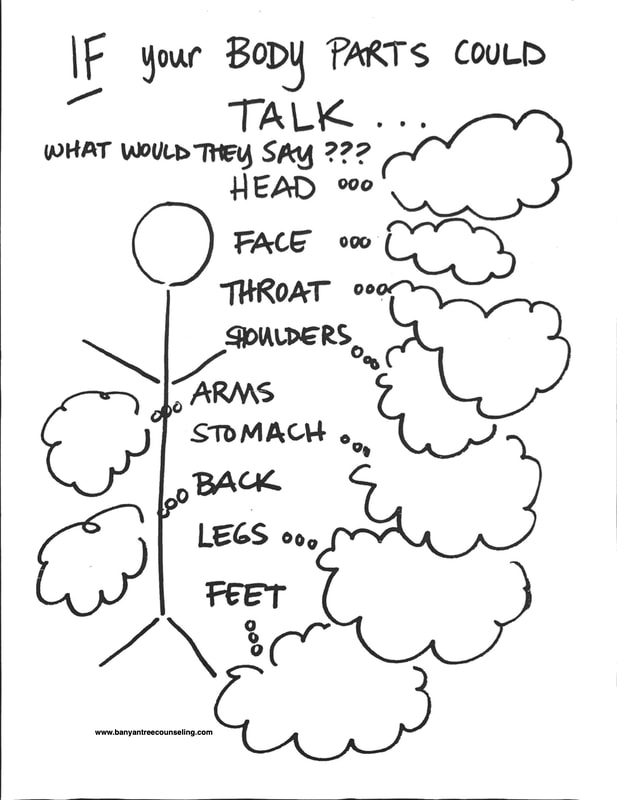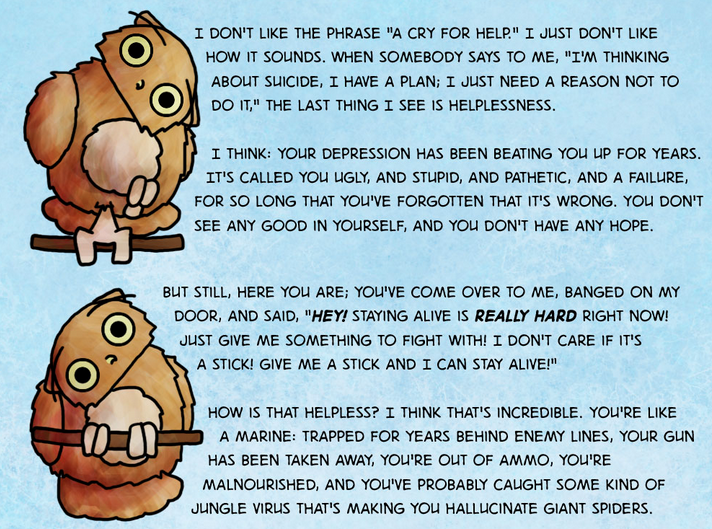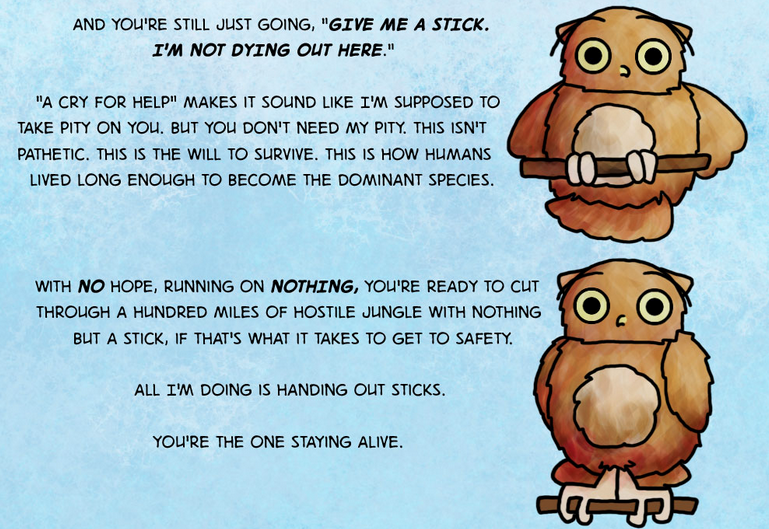- Home
-
Services
- Autism Assessments >
- Coaching
- Couples >
- Discernment Counseling
- Educational Consulting | Special Needs Advocacy >
- Psychiatric Services | Medication Management
- Nutrition
- Parenting + Family Therapy
- Play Therapy for Children
- Separation Counseling + Collaborative Parenting
- Telehealth
- Therapy for Teachers
- Trauma
- Schedule Appointment
-
Meet the Team
- Abby Olmstead
- Adrienne Fisher
- Amber Garcia >
- Amber Miner
- Andrea Miles
- Arionna Wilkerson
- Autumn Martin
- Amber Miner
- Brittany Kai
- Brittany Proxmire
- Brittany Stewart
- Bru Ramirez >
- Chantal D. Hayes
- Christine Ridley
- Emily Ortiz Badalamente
- Hayley McCraw
- Jamie Cullen
- Jared Brinkerhoff
- Jordan Peterson
- Josh Bolle
- Les Gura
- Lisa Carpenter
- Logan King
- Rashaad Nelson
- Sarah Vanderpool
- Savannah Ornt
- Simone Banks
- Tiffany Woods
- Administrative Staff >
- About Us
- Hiring
|
In the practice of psychotherapy, therapists learn about and utilize many tools to help our clients find lasting change, improving their overall mental health and wellbeing, and psychotropic medications can be one of those tools. It is important to realize that not everyone needs medication to treat their mental health symptoms, and not everyone who needs medication will need it forever. The purpose of this article is to provide basic education about psychotropic medications, because I find that most of my clients who take psychotropic medications are under-educated about them, and many clients who do not take medications are scared to start for the same reason. How do psychotropic medications affect the brain?Mental health disorders (anxiety, depression, bipolar disorder, etc…) are a result of chemical imbalances in the brain, specifically of the neurotransmitters serotonin, norepinephrine and dopamine. These chemical imbalances can be endogenous (genetic factors, internally caused), exogenous (life events, trauma, external factors), or both. Psychotropic medications work to create balance in neurotransmitters by adjusting how the receptors in the brain absorb the chemical, effectively reducing negative symptoms. Different medications work on different neurotransmitters, and it varies individually what each person’s brain needs or will respond to, depending on symptoms and brain chemistry. What are the types of psychotropic medication? Anti-Anxiety Medications
Anti-Depressant Medications
Antipsychotic Medications Used to treat Bipolar Disorder, Schizophrenia, Personality Disorders, Severe Depression and Severe Anxiety.
Mood Stabilizers Used to treat the mood swings of Bipolar Disorder, and sometimes to enhance the effect of other medications when treating Depression. Reduce excitability in the brain, to calm overstimulated and overactive neurons. Many anticonvulsant medications are used as mood stabilizers. Examples: Lithium (Eskalith), Depakote (Divalproex Sodium), Lamictal (Lamotrigine), Tegretol (Carbamazepine), Topamax (Topiramate), Trileptal (Oxcarbazepine) Stimulants Used to treat Attention Deficit Hyperactivity Disorder (ADHD), increase dopamine and norepinephrine. Can be addictive and can easily form a dependence. Examples: Adderall (Amphetamine), Vyvanse (lisdexamfetamine), Focalin (dexmethylphenidate), Ritalin/Concerta (methylphenidate), Dexedrine (dextroamphetamine) Who can prescribe psychotropic medications? While a licensed therapist or counselor may be knowledgeable about psychotropic medications, only medical professionals can prescribe them. The medical professionals with the most knowledge and training in prescribing psychoactive medications are Psychiatrists. Psychiatrists are medical doctors (MD) that have completed residency and training in psychiatry. Most psychiatrists do not engage in talk therapy; they focus on symptom and medication management in brief (15-20 minute) appointments. Other medical professionals able to prescribe psychotropic medications are Primary Care Physicians (MD/GP), Physician Assistants (PA), Psychiatric/Mental Health Nurse Practitioners (PMHNP), Nurse Practitioners (NP), Certified Nurse Midwives (CNM), and Gynecologists/Obstetricians (OB/GYN). How do I know if I need psychotropic medications? In my practice, for someone who is not currently taking psychotropic medications, I will generally recommend medications if we seem to continue hitting a wall with ongoing negative symptoms, despite all reasonable efforts to improve them. If adding structure, recognizing and changing thinking, improving overall physical health, learning emotional identification and expression, and addressing spiritual health doesn’t improve symptoms markedly, this indicates to me that the symptoms are endogenous in nature, and need chemical help to mitigate. What do I need to be aware of if I start taking psychotropic medications? All medications generally have some risk of side-effects, some more troublesome than others. Speaking with your prescribing physician and doing your own research are important before starting on any psychotropic medication. Most common side-effects for psychotropic medications are disturbances in sleep and appetite. Some of these can be mitigated by adjusting the time of day they are taken (morning if the medication is activating to your brain at night), and taking them with food to reduce nausea. Research has shown that the most effective treatment for mental health disorders is a combination of medication and therapy. Taking psychotropic medications without including therapy will not result in lasting change and improvement in symptoms. For real and sustained life change, medications can help provide enough of a lift or relief of symptoms so work can happen in therapy, to prevent recurrence of negative symptoms.
2 Comments
Almost an entire year into a worldwide pandemic, you may be feeling more stressed than ever. COVID-19 has made life different for everyone. From social distancing to virtual learning, everything has changed. Our routine isn’t what we were used to, and that can come with challenges.If you find yourself struggling, finding a mental health counselor who can help you through this tough time is essential, even through a screen. You wouldn’t just brush off a broken arm, would you? So why would you ignore your mental health? Your brain is your most complex and important organ. You have to take care of it. The Impact of COVID on Mental HealthThe world has been turned upside-down in the last year, from social distancing to having to go through virtual learning. All these changes are making it rougher for mental health than normal everyday life. It’s no secret that a pandemic is rough on mental health. It’s been documented before that a pandemic will see a rise in mental health issues like anxiety, depression, and even OCD. There has been a rise happening with mental health issues because of the isolation, social distancing, and virtual learning and work. Social Distancing & IsolationOne of the first things that happened in many places was the closure of non-essential businesses and schools all over the United States. People were told that staying home and only going out when needed was going to help prevent the spread of the virus. All restaurants were closed to dine-in, and other social gatherings were put on hold till further notices. There are reported issues that come with social isolation, which is where we are now. People are feeling the adverse effects of what is our new normal. There has been a rise of about 37% in mental health issues ranging from anxiety to depression during this quarantine. The biggest worry is that of suicidal ideation during this time. Isolation is a risk factor for suicide, and being forced to be in isolation can increase the thoughts that lead to it. This is why talking to a mental health professional is vital. If you are finding yourself in a dark place, find a counselor in your area. These times are hard, and having someone to talk to is going to be essential. If you aren’t able to contact a counselor, then reach out to your family and friends. You may not be able to see them in person but use FaceTime and Zoom to meet people. Your mental health is so important, and you have to take care of yourself, even in isolation. Virtual LearningThere are many children out there that are still doing virtual learning. Your child may be one of them, and you can see them struggling. Many parents are worried about their child falling behind in social and emotional development during this time. It's a valid worry. Children need to have one another to thrive and grow into adults later on. Zoom classroom isn’t the same as being in a school, but it is better than nothing. Make sure your child is logging into the meetings and participating. This is going to help them in the long run, and if they are struggling, talk to the teacher yourself. For special needs children, this virtual learning is more challenging. IEPs and other learning accommodations aren’t easy when it comes to a virtual classroom. Now, as children start going back to the building, there are even more worries. For students with social anxiety, it may be heightened after being in isolation for so long. Take it easy on them and try and work with them to know it is okay. This virus is scary but wearing the mask, washing your hands, and staying six feet apart is helping. Finding a mental health professional that can help with these worries will be vital in helping those who struggle. Being able to talk to someone who understands is going to be helpful in the long run. Job InsecurityLosing a job during COVID-19 has been at an all-time high. This is a tough place to consider that have not only jobs been lost, but also insurance. This takes a toll on anyone’s mental health, not knowing how we can get the help we need. The less money you make, the worse the impact is when it comes to losing a job. It is a scary place to be when you don’t know how you will afford to take care of your health. Take the time to research what you can do if you lose your job and insurance. While it isn’t ideal, COBRA is an option if you can afford it. Your mental health should come first when dealing with something as stressful as a pandemic. Mental Health CheckIt is essential to check in on your mental health and those around you. There are many signs to take in, and while some are subtle, others are loud and in your face. Here are some of the signs to look out for that may be signs you need to see a professional.
Those are just some of the signs that you may need to check in with a professional. Remember, your brain sometimes needs some extra help-- it can get "sick" just like any other part of your physical body. This pandemic is taking a toll on everyone, and you shouldn’t have to feel like you are going at it alone. It isn’t easy right now in the world. That is clear as day. If you or someone you know is struggling, reach out. It doesn’t mean you are weak or broken-- it means you courageous and you care. We are here to help. Your mental health matters. Contact us to schedule an appointment with one of our licensed counselors today. Written by Tia Kitchens for Banyan Tree Counseling & Wellness. Holding a degree in Psychology from Capella University, Tia is a writer with a passion for psychology and learning. In her free time she enjoys being with animals and hopes to work with therapy animals in the future. Ultimately, she aspires to spread awareness about the importance of mental health.
If your body parts could talk, what would they say?I've used this worksheet with my own children, with students I've taught, and with clients, both children and adults. Teaching kids to "tune in" to their bodies is an essential skill and doesn't always come naturally. There are so many benefits to learning this skill! One is emotional regulation-- kids who can listen to their body have an easier time managing and coping with their feelings, especially the really big ones, like anger, disappointment, fear, frustration, guilt, sadness.. . They feel more capable, confident, have a more secure sense of self. They have less behavioral problems, better social skills with peers, more empathy and supportive relationships... It's not just a skill for kids., Adults benefit in similar ways, too, with overall mental stability, positive sense of self, solid relationships, increased career satisfaction. Take a moment today to tune inward,. Breathe in for 4 seconds, hold for 7, and slowly release for 8. Then scan your body and really listen to what each body part is telling you. Maybe some are silent, while others are screaming! That's ok, no judgement. All you have to do is listen. Click to download the PDF to use at home.
Some photos of Banyan Tree Counseling's space: Suite 203, 1348 Westgate Center Dr. Winston Salem, NC 27103. There is lots of growing, healing, thriving, playing, and difficult yet joyful work happening in this sacred space... Come join us! Calling a therapist is often the best thing you can do for yourself, your child, or your family. Our fees are affordable and office is centrally located. We look forward to connecting with you.
|
Banyan Tree Counseling & WellnessWe are a team of licensed clinicians with a holistic, strengths-based, and evidence-based approach. We offer counseling for people of all ages, life coaching, group therapy, educational consulting and advocacy, assessments, and dietary nutrition services. Categories
All
|
||||||||
Individual Counseling • Psychiatric Services • Medication Management • Nutrition counseling
COUPLES & FAMILIES • CHILDREN & TEENS • EDUCATIONAL ADVOCACY
If you are in a life threatening situation call 1 (800) 273-8255 or use these resources to get immediate help.
HIPAA Notice of Privacy Practices
© 2015-2024 Banyan Tree Counseling PLLC | Banyan Integrated Health PLLC | Banyan Tree Wellness LLC | All Rights Reserved.
All content on this website, unless otherwise specified, is the sole property of Banyan Tree Counseling & Wellness and is protected by copyright laws.
Any unauthorized reproduction, distribution, or use of this content is strictly prohibited and may result in legal action.
HIPAA Notice of Privacy Practices
© 2015-2024 Banyan Tree Counseling PLLC | Banyan Integrated Health PLLC | Banyan Tree Wellness LLC | All Rights Reserved.
All content on this website, unless otherwise specified, is the sole property of Banyan Tree Counseling & Wellness and is protected by copyright laws.
Any unauthorized reproduction, distribution, or use of this content is strictly prohibited and may result in legal action.
- Home
-
Services
- Autism Assessments >
- Coaching
- Couples >
- Discernment Counseling
- Educational Consulting | Special Needs Advocacy >
- Psychiatric Services | Medication Management
- Nutrition
- Parenting + Family Therapy
- Play Therapy for Children
- Separation Counseling + Collaborative Parenting
- Telehealth
- Therapy for Teachers
- Trauma
- Schedule Appointment
-
Meet the Team
- Abby Olmstead
- Adrienne Fisher
- Amber Garcia >
- Amber Miner
- Andrea Miles
- Arionna Wilkerson
- Autumn Martin
- Amber Miner
- Brittany Kai
- Brittany Proxmire
- Brittany Stewart
- Bru Ramirez >
- Chantal D. Hayes
- Christine Ridley
- Emily Ortiz Badalamente
- Hayley McCraw
- Jamie Cullen
- Jared Brinkerhoff
- Jordan Peterson
- Josh Bolle
- Les Gura
- Lisa Carpenter
- Logan King
- Rashaad Nelson
- Sarah Vanderpool
- Savannah Ornt
- Simone Banks
- Tiffany Woods
- Administrative Staff >
- About Us
- Hiring






